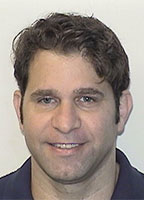The adult heart is one of the least regenerative organs in the human body, among other reasons due to its lack of cardiac stem cells. As a consequence, heart disease remains the leading cause of mortality for both men and women, and congenital heart defects affect one percent of the human population.
Investigators at the Black Family Stem Cell Institute (BFSCI) are working to understand the underlying causes of heart disease with the goal of developing new therapeutic strategies.
Pluripotent stem cells have emerged as a new and powerful tool to study the molecular mechanisms of the complex genetics involved in adult and congenital heart defects. Furthermore, pluripotent stem cell-derived cardiomyocytes represent an unprecedented opportunity for cardiac cell therapy and regenerative medicine.
Parallel efforts in the field of cardiac regeneration include enhancing the regenerative potential of adult cardiomyocytes and reprogramming somatic cells toward the cardiac lineage. Laboratories at the Institute study how the cardiovascular system is established during development, and how errors in this process lead to congenital disease. Taking advantage of genome-wide association studies, BFSCI investigators uncover new mutations underlying heart defects, and use in vitro and in vivo models to study their function and to design targeted therapies. Advanced technologies such as CRISPR-guided genome editing, gene delivery via modified RNA, or tissue engineering enable Institute investigators to be at the forefront of discovery and to pursue the goal of better therapies for patients with heart disease.
Investigators with a major focus in cardiac biology and regeneration include:


